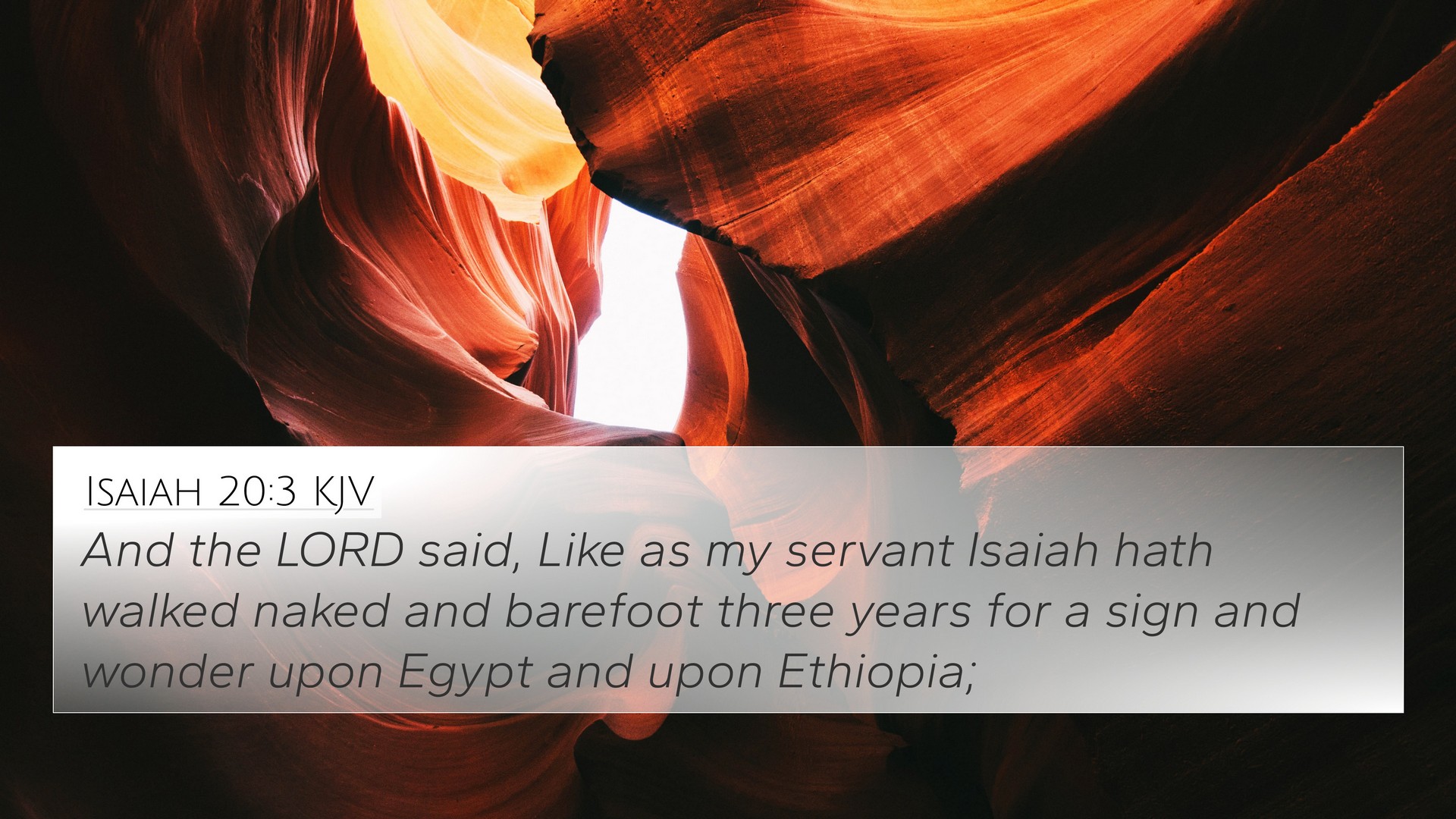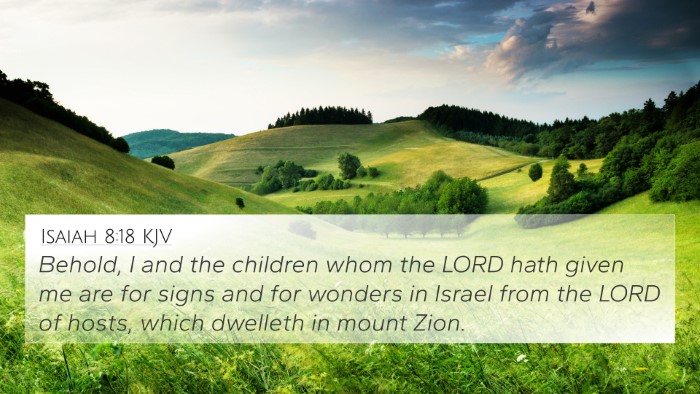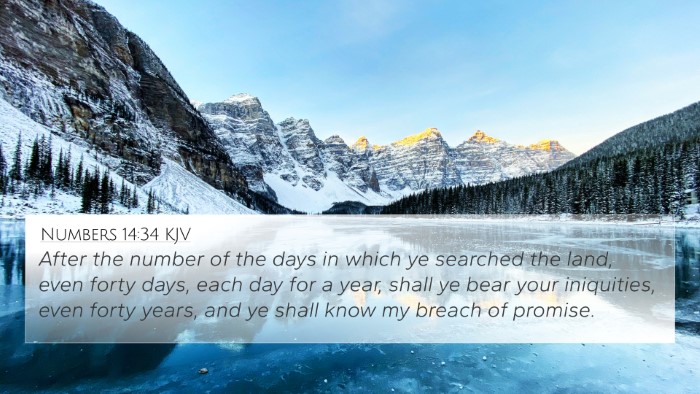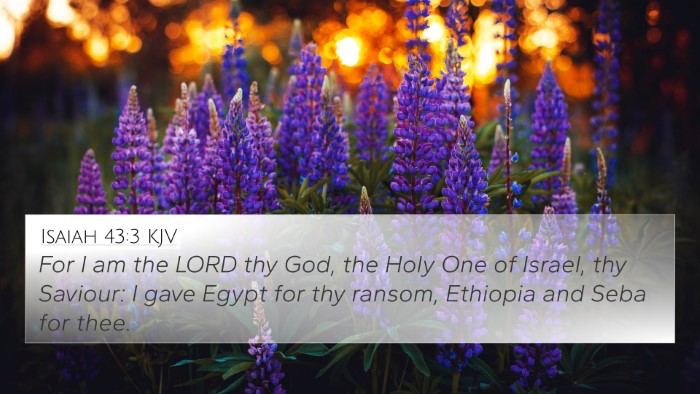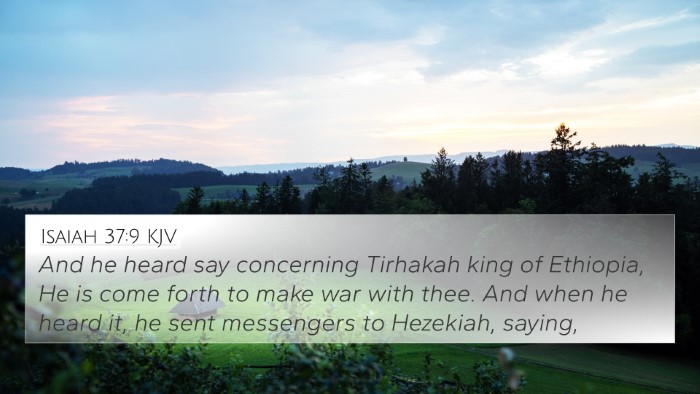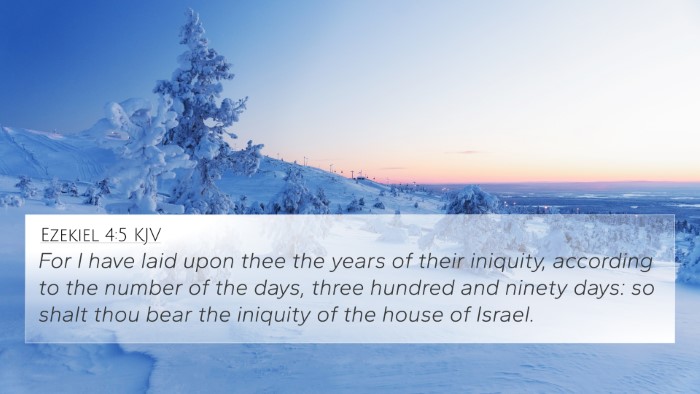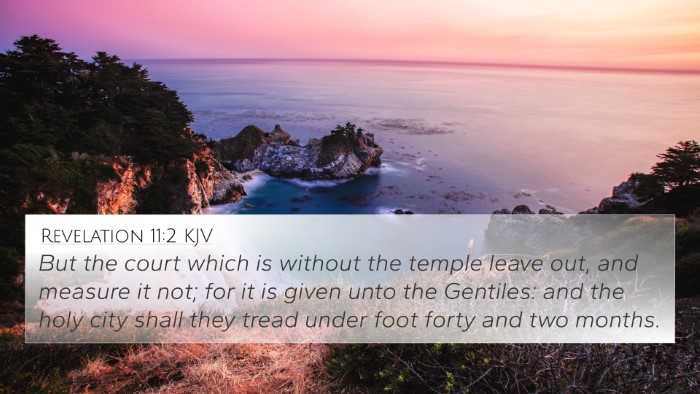Understanding Isaiah 20:3
Isaiah 20:3 reads: "And the LORD said, Like as my servant Isaiah hath walked naked and barefoot three years for a sign and wonder upon Egypt and upon Ethiopia." This verse depicts the prophetic actions of Isaiah in delivering a message to Israel, using his own experiences as a tangible symbol of God’s impending judgment and the folly of trusting worldly powers.
Summary of Interpretations
To fully grasp the depth of Isaiah 20:3, it is essential to explore its meaning through various commentaries. Insights from Matthew Henry, Albert Barnes, and Adam Clarke can shed light on this verse's significance:
- Matthew Henry's Commentary: Henry emphasizes the prophetic demonstration of Isaiah’s actions, illustrating his vulnerability and the seriousness of God’s message against Egypt and Ethiopia. He interprets Isaiah's nakedness as a sign of the shame and reproach that would come upon these nations, highlighting the futility of their reliance on foreign aid.
- Albert Barnes' Notes: Barnes interprets this act—walking naked and barefoot—as a divine instruction to symbolize the disgrace that would come upon nations that defied God. He notes that this three-year period signifies both a literal and metaphorical representation of being stripped of power and glory, a warning to Israel about alliances with Egypt.
- Adam Clarke's Commentary: Clarke adds depth by noting the cultural implications of Isaiah's actions. He suggests that this prophetic act not only conveyed a message to Israel but also held significance for those surrounding nations, serving as a stark warning about impending judgment and the consequences of turning away from God.
Historical Context
The historical context of Isaiah's prophecy is crucial. At the time, Israel was contemplating alliances with surrounding nations for protection against Assyrian invasion. Isaiah’s nakedness was a shocking display, challenging the contemporary beliefs in these alliances. It served as a divine warning that their trust should rest solely in the Lord, rather than in foreign powers.
Thematic Connections & Cross-References
This verse interconnects with several Biblical themes, echoing the urgency of divine messages delivered through unconventional means. Below are key cross-references that expand upon its thematic meaning:
- Jeremiah 13:26-27: These verses discuss God’s command to Jeremiah to make a similar prophetic action that symbolizes judgment and exile.
- Ezekiel 4:4-6: Ezekiel’s symbolic acts further illustrate the severity of Israel’s impending judgment.
- Isaiah 19:1: A prophetic warning about Egypt, paralleling the message in Isaiah 20.
- 2 Kings 18:21: A historical account where reliance on Egypt is condemned.
- Isaiah 30:1-3: God's displeasure with the people relying on foreign alliances, reinforcing the principal themes of Isaiah 20:3.
- Hosea 12:1: Another scripture warning against reliance on Egypt, tying back to the themes presented in Isaiah.
- Proverbs 21:30: The futility of earthly wisdom opposing divine plans links the understanding of God’s sovereignty.
- 2 Corinthians 5:3: While representing a New Testament perspective, similar themes of being stripped away connects to John’s prophecies, emphasizing the call for God’s people to remain steadfast.
- Matthew 10:16: The call for wisdom among believers in a world opposed to divine truth offers a modern application of the principles seen in Isaiah’s actions.
- 1 Peter 4:16: The endurance of suffering for the sake of Christ links to the sacrifices made by prophets like Isaiah in their ministry.
Practical Application
Understanding Isaiah 20:3 challenges believers today to consider the cost of following God's instructions. It invites reflection on how prophetic actions can be misinterpreted but ultimately serve the purpose of reinforcing God's message. Here, the faithfulness of proclaiming God's truth, even at great personal cost, points believers towards a dedication to unwavering faith in God over worldly alliances.
Conclusion
Through the lens of cross-referencing Biblical texts, Isaiah 20:3 serves as a profound reminder of the consequences of misplaced trust and the vital role of prophets in God's plan. Just as Isaiah embodied God's messages, believers today are called to live out their faith in ways that reflect God’s truth and warnings. In exploring the connections and themes within Isaiah 20:3, we can deepen our understanding of the Scriptures while recognizing the relevance of these messages in our contemporary contexts.
